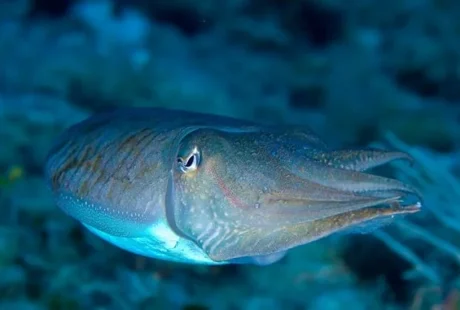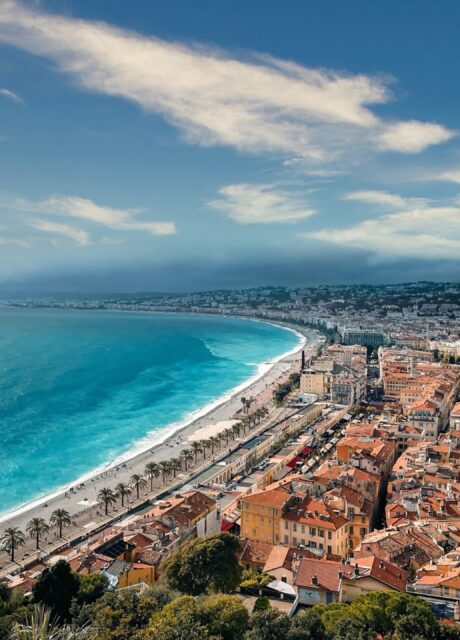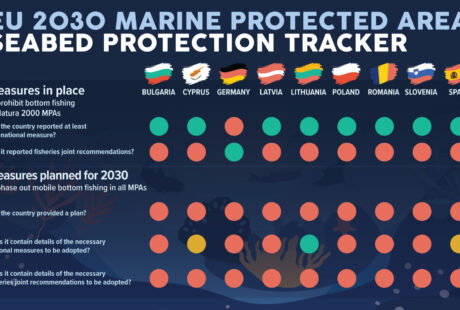The Special Report on the Ocean and the Cryosphere, released today by the Intergovernmental Panel on Climate Change (IPCC), makes for grim reading. The ocean is the life-support system for our planet. It pumps nutrients around the globe, helps to regulate weather patterns and produces half of the oxygen we breathe. By absorbing 90% of the excess heat in the atmosphere and 30% of the CO2, it has so far protected us from the worst effects of the climate crisis.
We are continuing to push that life-support system to its very limits, with the ocean now changing at a faster pace than at any point in the past millions of years. Alarming effects include the melting Arctic and Antarctic, two white areas that perform a crucial temperature regulation service by reflecting the sun’s heat back into space. Any loss of these frozen regions accelerates climate change. In addition, having absorbed heat and carbon dioxide from the atmosphere, the ocean is becoming warmer, more acidic, less salty, and losing oxygen, with marine heatwaves increasing in frequency, length and severity. All of these changes are fundamentally altering ecosystems and impacting on the climate. It is a sobering thought that acidification, heating and deoxygenation have been features of every mass extinction event in Earth’s history.
The ocean itself can – and must – be a powerful actor in the fight against climate breakdown, and we must make sure it is fit enough to continue doing this.
The ocean is an excellent carbon sponge. Mangroves, seagrass, fish and marine mammals are very effective in capturing CO2. Coastal habitats, for example, trap CO2 40 times faster than tropical forests. The more biodiversity the ocean holds, the greater its resilience to climate change. To deal with the impacts we need to support the ocean to go wild.
- Ending overfishing is climate action
We know that fisheries are devastating marine life. Yet, despite the existing goal to achieving sustainable fisheries by 2020, at both EU and UN level, political will is lacking and overfishing remains the norm throughout the world. With the 2020 deadline around the corner, we continue to catch too many fish and fail to allow fish populations time to replenish. This depletes the fish populations in our oceans and weakens marine ecosystems that are already subject to significant human pressures. Nearly 90% of the world’s marine fish populations are fully exploited, overexploited or depleted. In the EU alone, 41% of the fish stocks in the North East Atlantic and 87% in the Mediterranean and Black Seas are overfished. We are now going further and deeper, attacking pristine habitats with invasive fishing techniques (like bottom trawling or dredging) that destroy marine habitats (coral), remove carbon-capturing habitats (seagrass), and catch sea life (turtles and dolphins) that we neither want nor eat. Catching shrimp, for example, not only destroys the sea bottom but sees up to 90% of the creatures caught in the net discarded as ‘waste’. Scientists are researching the effects of unsustainable fisheries management on the capacity of marine ecosystems to counter the worst effects of the climate crisis. According to a recent study by Professor Rashid Sumaila, ‘ending overfishing would reduce the cumulative pressures on the ocean and increase its resilience, potentially mitigating the effects of climate change.’
- Marine conservation and restoration is climate action
If we are to bolster the resilience of the ocean, we need to reduce the pressure of human activities and provide marine life with safe havens to recover. Increasing numbers of scientists and policy makers are calling for at least 30% of the ocean to be truly and fully protected against human impacts to restore marine ecosystems. While claiming to be leaders in environmental protection, European countries have failed to meet their commitment to protect at least 10% of their marine waters against harmful human impacts by 2020. Although over 12% of the marine waters of the EU are designated as ‘protected’ on paper, in reality measures regulating or banning harmful human activities are lacking in most Marine Protected Areas and destructive human activities, such as dredging or bottom-trawling, continue as usual.
Marine restoration and conservation is also about phasing-out pollution that destroys marine ecosystems. In 2008, EU countries undertook a legal commitment to achieve Good Environmental Status of their seas by 2020. This entailed taking all measures necessary to protect and restore marine biodiversity, create a network of well-managed Marine Protected Areas, stop marine pollution from plastic, chemicals, biological and agricultural sources, and phase-out underwater noise. With months to go until the deadline, this has yet to happen. The European Commission admitted in 2018 that ‘achieving good environmental status by 2020 across all European marine regions remains unlikely’.
- Implementing the law is climate action
With the Paris Agreement, countries agreed to reduce their carbon emissions and keep global warming ‘significantly below’ 2⁰C, with a more ambitious target to stay below 1.5⁰C. Despite these commitments, recent years have been the hottest ever recorded and we are fast approaching the 1.5°C threshold. Even if all negative stressors were to cease immediately, the climate crisis would still unfold and its consequences be felt for a long time. Immediate political action is needed to limit climate impacts and prevent large-scale disastrous effects worldwide.
Citizens of the European Union and around the world have already made their opinions known. Friday 20 September 2019 witnessed the largest-ever climate protest, when millions of people around the world walked out of their schools and workplaces to demand that their politicians take immediate action to prevent total climate breakdown. Seas At Risk and its members were with you in the streets, calling for more ambitious action to protect our ocean, reminding leaders and the world that a healthy ocean is our best ally in the unprecedented battle ahead of us.
Our politicians will shortly have the chance to take a significant step in the right direction. In mid-October and mid-December, the EU’s Fisheries Ministers will meet to decide on the fishing quotas for 2020. If they heed the warnings of the scientists and the voices of voters, their decisions will allow fish populations in EU waters to start recovering, with positive effects for marine ecosystems and resilience to climate change. With little more than a year left before the end of 2020, EU governments still have the opportunity to take ambitious action to achieve Good Environmental Status of their seas. Solutions exist and they have popular support: over 180,000 people are asking their countries to finally do the right thing and save our seas!
Will European Fisheries Ministers comply with the legal deadline to achieve sustainable fisheries? Will European governments implement the necessary measures to restore marine health? To fail to do so is to break the law, perpetuate overfishing and marine ecosystem destruction, and push Earth’s life-support system into collapse.
Posted on: 25 September 2019


